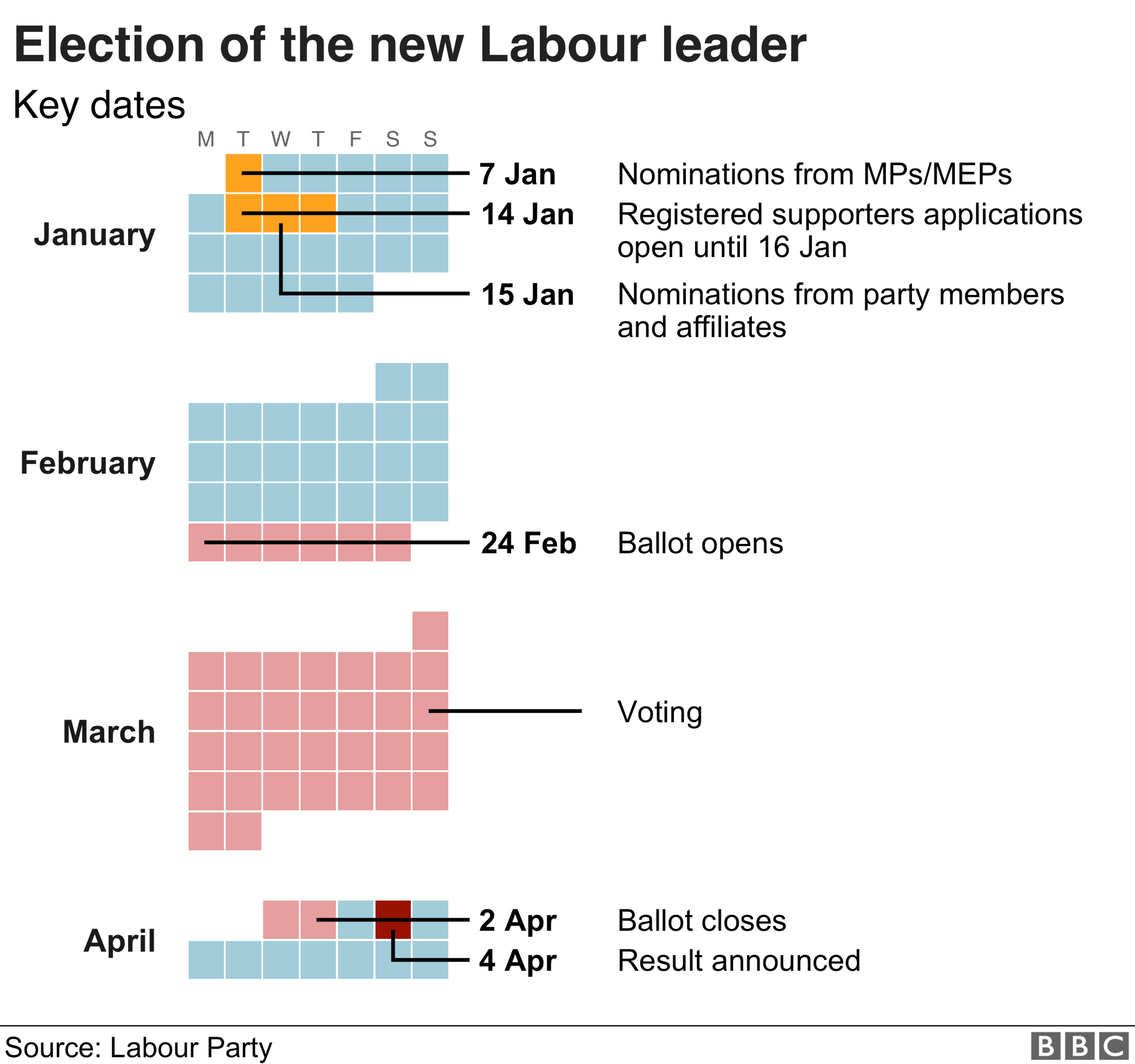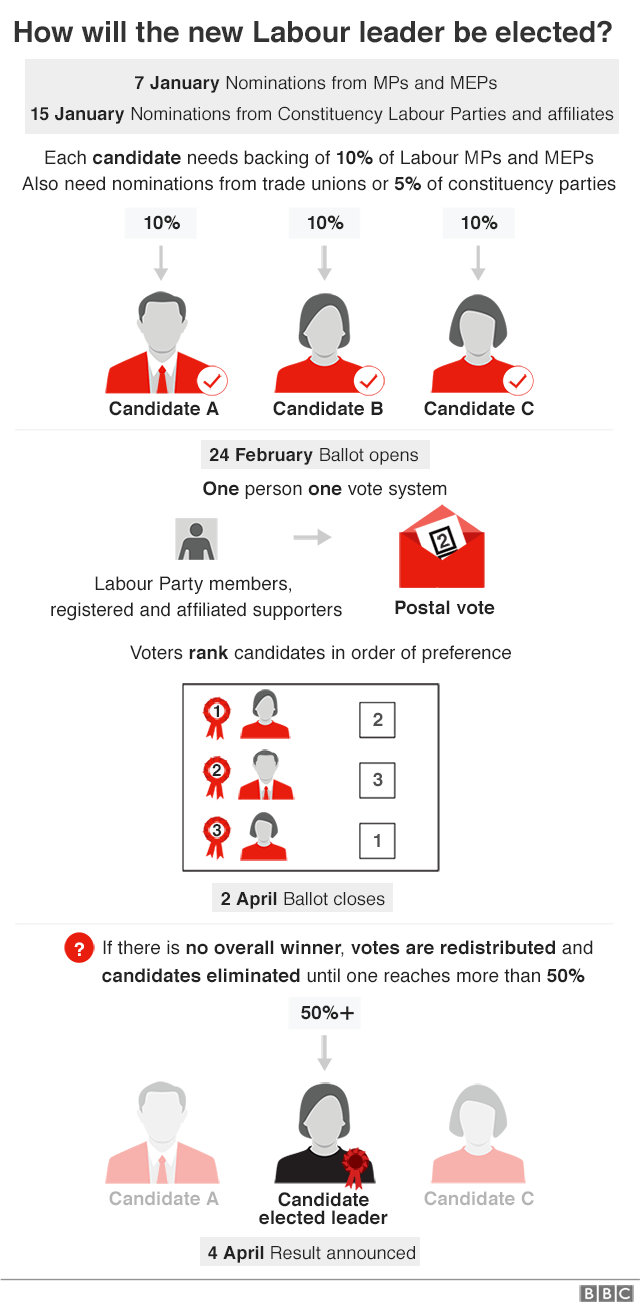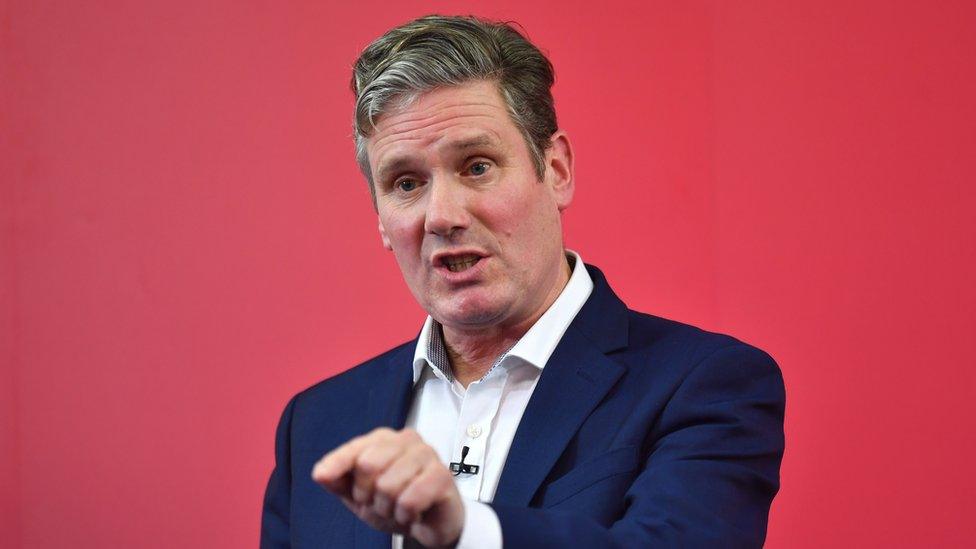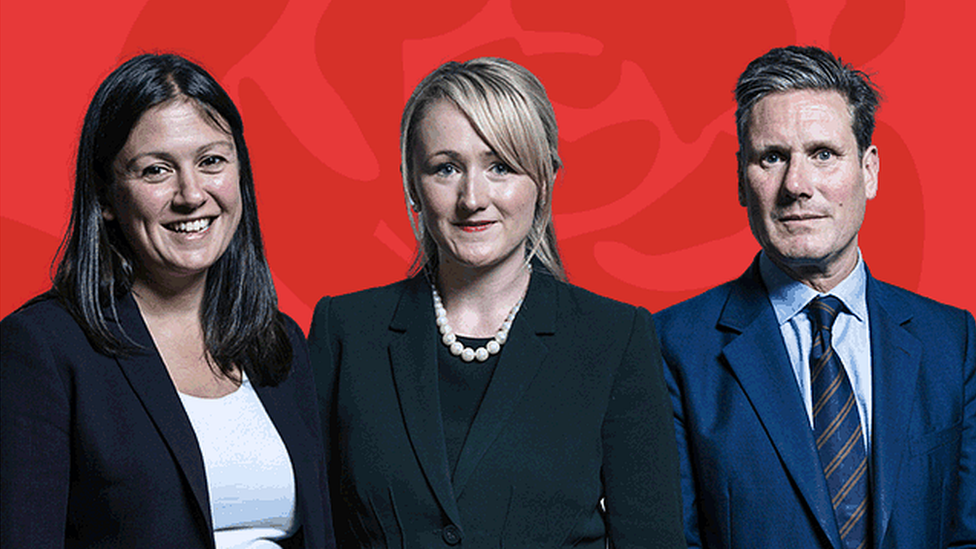Tony Blair: Labour leadership hopefuls must offer radical change
- Published
Tony Blair says Labour manifesto was unconvincing
Tony Blair has questioned whether the contenders for the Labour leadership offer the "fundamental" change the party needs to get back into power.
The former Labour PM said the party was facing a "make-or-break moment" after losing four general elections in a row and required "head-to-toe renewal".
Rebecca Long-Bailey, Lisa Nandy and Sir Keir Starmer are competing to succeed Jeremy Corbyn as Labour leader.
Party members start voting next week, with a winner announced on 4 April.
Speaking in London, Mr Blair - prime minister from 1997 to 2007 - said Labour's manifesto for December's general election had been unpopular and many voters had judged it to be "incredible".
He called the party's Brexit policy ahead of the election "bizarre", but added that it should not change position and immediately campaign for the UK to rejoin the EU.
"You've got to give [Brexit] a chance to be done," he added.
At the King's College London event marking the 120th anniversary of the founding of Labour, Mr Blair acknowledged that his advice was not "particularly welcome to today's party".
He said he would not be endorsing any of the leadership candidates, as he did not want to "damage anyone by supporting them".
But he said: "When you really look objectively at our position, fundamental reconstruction is what you need.
"Now, I don't think you can tell whether any of the leadership people, or the people likely to win, are going to do that or not right now."


It's a given that Tony Blair - Labour's most successful election winner - is a virtual hate figure for many in the party.
So, sensibly, he chose "not to damage" any of the leadership candidates by backing them.
It's pretty clear, though, that he doesn't believe any have grasped the scale of the "make-or-break" crisis the party faces.
Perhaps more significantly, however, he clearly doesn't believe a simple return to the centre ground - or Blairism - will be enough to save Labour .
"In five years' time it will not be enough for Labour to be moderate," he warns.
Mr Blair's case is that politics is in a period of unprecedented change, driven in large part by rapidly changing technology. The scale of upheaval and disruption with AI, genetic engineering, driverless cars and so on - is re-shaping society and politics.
Labour, therefore, he says, cannot afford to remain recycling old debates and polices over traditional issues like nationalisation, NHS spending and tuition fees. The world and voters are moving on.
Nor is this a problem confined to Labour. Progressive parties across Europe, he argues, are in disarray and appear "defunct" - and are facing a similar challenge.
It may be that Mr Blair's analysis simply won't get a hearing because, well, he's Tony Blair.
But, even his critics can agree, he is at least asking some of the big questions.

In his London speech, Mr Blair argued that Labour would have performed better at the election with a "more moderate" leader, but required more far-reaching change in the long run.
He added that the party should "redefine what radical means" in the context of technological changes and needed to build a "whole new progressive alliance".
Meanwhile, Ms Nandy has said the party must be "honest" about the failings of New Labour if it is to persuade voters to acknowledge the party's past achievements.
Speaking on ITV's Good Morning Britain, she said Mr Blair's time in office had been "game-changing".
She added: "But to earn the right for a hearing with the public about the things we got right, we've also got to be honest about the things we got wrong."
Ms Nandy has previously argued that under Mr Blair, who led Labour from 1994 to 2007, the party "tacitly accepted that four decades of economic conservatism was a bigger priority than people".


In his speech, Mr Blair also warned the party against entering into a "culture war with the right" on issues such as trans rights - and said he would not sign up to a pledge to expel party members who have expressed "transphobic" views.
Wigan MP Ms Nandy and shadow business secretary Mrs Long-Bailey have said they would sign the 12-point plan by the Labour Campaign for Trans Rights.
Sir Keir, the party's Brexit spokesman, has not signed the pledge but has committed to a different series of promises, external from LGBT Labour, a party affiliate group.


- Published11 January 2020

- Published18 February 2020
